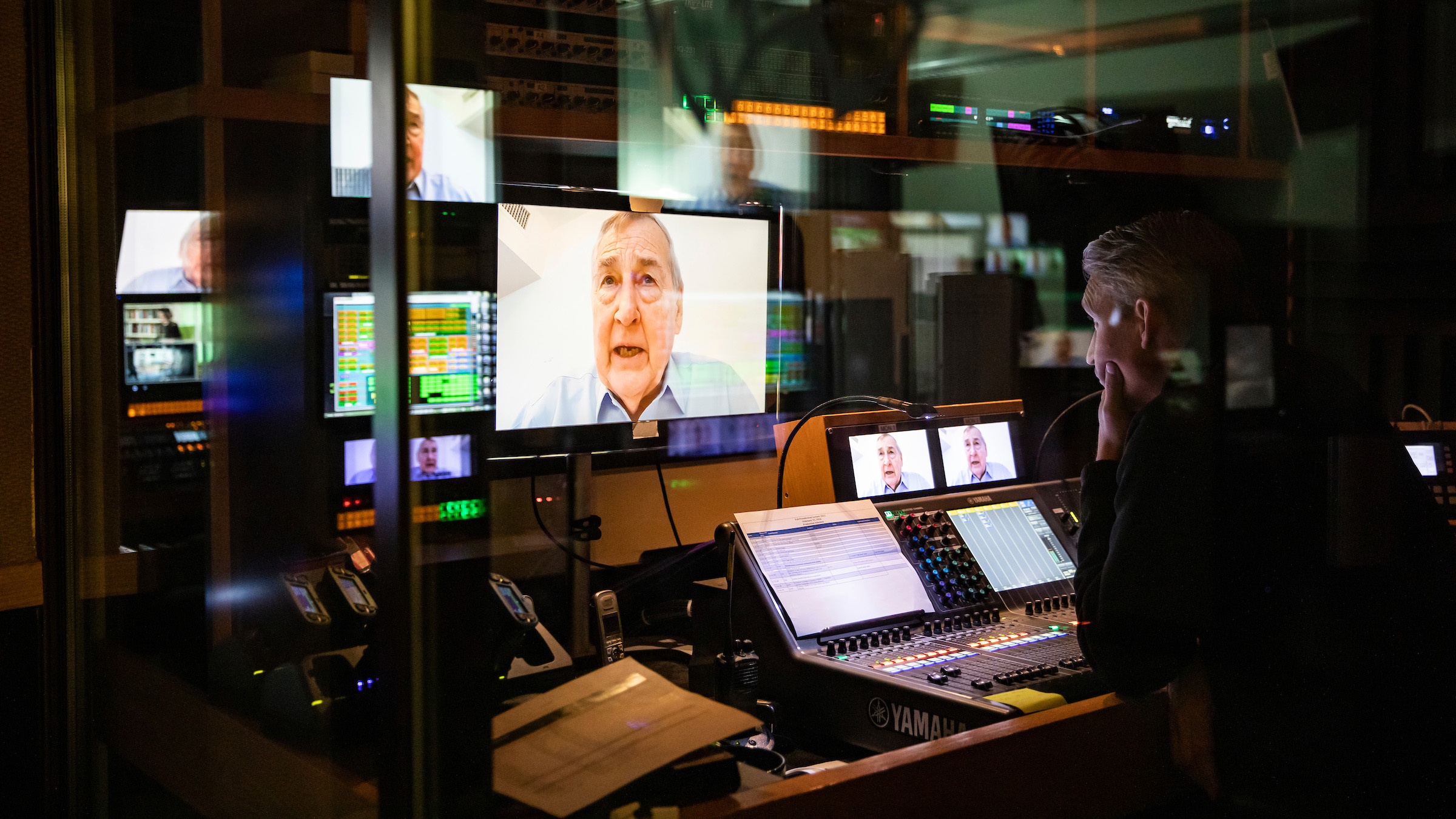Utah Valley University welcomed Dr. Graham T. Allison, a leading national security expert and the founding dean of Harvard University’s John F. Kennedy School of Government, for the Spring 2021 Presidential Lecture on Thursday, Feb. 25.

Utah Valley University welcomed Dr. Graham T. Allison, a leading national security expert and the founding dean of Harvard University’s John F. Kennedy School of Government, for the Spring 2021 Presidential Lecture on Thursday, Feb. 25. An audience of over 700 people, which included high school students and institutional advisory board members, participated in the virtual event.
Allison, the Douglas Dillon Professor of Government at Harvard and former director of the Belfer Center for Science and International Affairs, has advised the secretaries of defense under Presidents Reagan, Clinton, and Obama. He is the author of the national and international bestsellers Essence of Decision: Explaining the Cuban Missile Crisis (1971) and Destined for War: Can America and China Escape Thucydides’s Trap? (2017).
The lecture began with an introduction from President Astrid S. Tuminez, who worked with Allison during her time as a research fellow and director of the Harvard Kennedy School’s Moscow office.
In his remarks, Allison discussed China’s dramatic rise in global power and the resulting implications for its relationship with the United States. The “China challenge,” which he defined as the most significant issue of the current international agenda, refers to China’s growing threat to America’s accustomed position in the global order. His understanding of the issue and recommendations for future political actions are grounded in history and the Athenian historian Thucydides’s writings.
Allison coined the term “Thucydides’s trap” to explain Thucydides’s insight that when a rising power threatens to displace a ruling power, the most frequent outcome is war. He emphasized, however, that war is not inevitable. Of the 16 cases of Thucydidean dynamics in the last 500 years, four cases have not resulted in war.
Allison described the U.S.-China relationship as a “Thucydidean rivalry” that threatens “to disrupt the international order of which the U.S. has been a principal architect and guardian.” Due to the potential for nuclear and climatological mutually assured destruction, Allison suggested that the best way forward for both countries is to consider ways to coexist and cooperate.
“Nature and technology have condemned us to coexist since the only alternative is to co-destruct,” Allison said. Since the existence of nuclear weapons would bring catastrophic consequences for both countries in the case of war, Allison argued that neither country would logically choose to enter war except in the case of an unintended trigger, or “black swan” event. Similarly, the U.S. and China’s significant emission rates of greenhouse gases could contribute to an environment in which neither party could survive if they cannot find ways to work together to constrain emissions.
Allison cited examples of “rivalry partnership” as evidence for the potential for cooperation and coexistence. The first example was a Chinese treaty between the Song and Liao dynasties over 1,000 years ago. As part of the treaty, each dynasty agreed to be partners in certain areas while remaining rivals in others. Allison also discussed the modern example of “coopetition,” or collaboration between business competitors, between Apple and Samsung. Although it seems like a contradiction for rivals to work together, Allison suggested that this is “a fact of life” for technology leaders.
At the end of the lecture, President Tuminez invited Professor Ryan Vogel of the UVU Center for National Security Studies to join for a question-and-answer portion. Vogel shared questions that students submitted on various topics such as planning for international relations in the future, balancing authority and liberty during times of threat, and connecting game theory with Thucydides’s Trap.
For more information about the biannual Presidential Lecture Series, please visit the events page of the Office of the President.